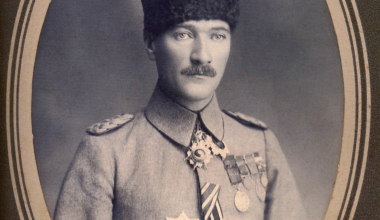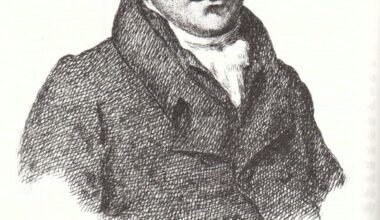
I was interested to hear of the unusual case of Kevin Yuill, who wrote recently in this magazine that he is a humanist, secularist, and atheist opposed to assisted dying. Since a basic humanist principle—at least as I, and most self-identified humanists, understand it—is the belief that everybody should have agency over their own body and be able to make choices that are best for them, this is like somebody saying, ‘I am a true pacifist, but I would like to join the army.’ Is he really saying that he could stand by unmoved if a close relative of his were in the same position as Tony Nicklinson, suffering from locked-in syndrome and begging pitifully for deliverance from his seven-year-long ordeal through blinking his eye—his only way of (computer-aided) communication?
Would Yuill really not immediately begin campaigning for a change in the law, instead of spending years battling to maintain the cruel status quo? Answering ‘yes’ to this question would mean that he couldn’t possibly continue to claim to be a humanist. I could understand a god-squadder getting worked up about this issue but not a self-proclaimed rationalist. Yes, I could see such a person raising legitimate questions about some of the aspects of this moral issue, but that approach is not for Kevin Yuill, who appears to be in the grip of an obsession.
Could this be because he is aghast at the lingering painful deaths some people must endure? Well, no, that’s his opponents’ case. Does he see himself as a knight in shining armour, riding to the rescue of the condemned? But there’s nothing to rescue. Nobody is being dragged kicking and screaming to the scaffold. Could it be that he is a crypto-Christian, using the humanist label to strengthen his impact? I cannot claim to know the answer to this question, though a case could be made for it. But such speculation on motives might be seen as unfair, so let’s take Yuill at his word and see what he has to offer by way of argument.
He sets out his stall in his 2013 book Assisted Suicide: The Liberal, Humanist Case Against Legalization. I have been unable to locate a copy of this book but have seen two extensive, highly critical reviews of it: one by Iain Brassington in the Journal of Medical Ethics blog, the other by Jonathan Herring of Exeter College, Oxford. It seems that Yuill’s recent Freethinker article offers a précis of the book’s arguments, so let us turn to that.
Yuill makes a big deal about terminology, always substituting ‘ASE (assisted suicide and euthanasia)’ for ‘assisted dying’. Who cares? There are more than 5,000 suicides in England and Wales each year, which is proof of the agony that many people must endure. If some of these desperate people can be helped to die at their own request, subject to all necessary scrutiny, overseen by two doctors, then a humane service is provided. By all means, let Yuill call it assisted suicide; would he prefer that people starve themselves to death or cut their veins in the bath or find a rope and a tree?
Yuill’s commentary contains several unsubstantiated allegations but one that stands out particularly is his despicable statement that ‘utility is the real force behind [assisted dying] campaigns; some citizens—particularly those who are disabled or elderly—are inevitably valued less than others.’ Where on earth does he get this from? He provides no evidence, apart from his own suspicious mind. In another leap of fantasy, he conflates modern interpretations of euthanasia with fascistic utterances by some German supremacists more than a century ago. Throughout, he portrays desperate applicants for assisted dying or ASE as unwilling lambs to the slaughter, urged on by suicide-promoting organisations, aided by the state. If only he could grasp the fact that such people ask for help unprompted, voluntarily, motivated by an irresistible desire to be free of their unbearable condition, without paying any attention to outside parties who might have an interest in their demise. It is highly condescending and offensive to suggest that people in despair are incapable of knowing what’s good for them.
[Yuill] talks about fear-mongering campaigns by assisted dying proponents whilst at the same time whipping up fear himself by saying that many vulnerable people are under mortal threat from predatory mercy killers.
Yuill makes great play of the fact that thousands of people who have died from euthanasia have had their lives cut short. Well, of course they have—that was the whole point! Why prolong a life that is unbearable by some extra months with no respite? Yuill just can’t seem to understand that people really are desperate to go through with this.
Further on he once again states that those with fewer years left and those with disabilities are thought to lead less valuable lives and thus are directed towards assisted suicide and euthanasia. Who are the fiends who apply this pressure and who are the doctors that approve enforced suicide for such people? He has a lot to say about fear in all directions. He talks about fear-mongering campaigns by assisted dying proponents whilst at the same time whipping up fear himself by saying that many vulnerable people are under mortal threat from predatory mercy killers. His singling out of Dignity in Dying and its engagement with Hospice UK over the former’s ‘The Inescapable Truth’ campaign conveniently omits to tell the end of that story. The two organisations engaged in an open discussion. Here is what Dignity in Dying’s Chief Executive had to say, which rather undercuts Yuill’s tendentious telling of the story:
‘[W]e welcome Hospice UK’s statement which acknowledges that some people will have a bad death, “despite the very best care” and the “need to be honest and straightforward with people about what dying can be like”. We also welcome Hospice UK stating that they “do not disagree with the findings in the Dignity in Dying report The Inescapable Truth About Dying” and “urge as many people as possible to read the report and debate the findings”.’
Yuill also looks abroad to Canada and Holland, both countries very close to my heart (I’m a Dutch national and have lived in both countries), for more ammunition. He alleges that in Holland an autistic man in his twenties who had been bullied and had long felt unhappy was ‘euthanized’ by his doctor ‘on this basis, and at his request’. This is a shallow interpretation of events; Yuill neglects to give the fuller context. This was, in fact, a highly unusual and complex case which received a great deal of attention and was minutely examined in a 3,000-word report by a regional scrutinising commission that ultimately gave it the all clear. Multiple doctors and psychiatrists, one of them a specialist in autism, were involved, not just one. Space doesn’t allow me to give all the details, and there is always privacy involved in interactions between patients and doctors. The upshot is that outsiders rarely get to know all the facts. If they did they would, more often than not, end up saying, ‘Well, if only I had known that’ instead of jumping to conclusions.
Equal care is taken in Canada, where legislation was first introduced in 2016. A recent poll showed that only 42% of Canadians supported assisted dying proposals for those with intractable mental health conditions (which can, incidentally, be even more troublesome than physical distress), while 77% supported the legislation as it stands. In response, the proposals were shelved, to be re-examined in 2027. Even eight years after legalising assisted dying, Canada is still cautiously fine-tuning its approach and respecting the democratic will of the people—hardly the hellscape portrayed by Yuill.
Yuill concludes his submission with the sentence: ‘There is wisdom yet in the famous old Christian precept, Thou shalt not kill.’ In reply, let me quote the former archbishop of Canterbury George Carey, who changed his mind in favour of assisted dying after seeing cases of true torment: ‘The old philosophical certainties have collapsed in the face of the reality of needless suffering. … In strictly observing accepted teaching about the sanctity of life, the church could actually be sanctioning anguish and pain—the very opposite of the Christian message.’ Kevin Yuill is free to choose to suffer an appalling death, should he have the misfortune to face such end-of-life circumstances. But his view that everyone else may not choose to avoid such an end is incompatible with the very heart of humanism.
More on the assisted dying debate
National Secular Society podcast on the 2021 Assisted Dying Bill: Emma Park interviews A.C. Grayling and Molly Meacher, Baroness Meacher
Bishops in the Lords: Why are they still there? by Emma Park
Assisted dying: will the final freedom be legalised in France? by Jean-Luc Romero-Michel







1 comment
It is endlessly cruel to allow only the SHORT-term suffering people to end their suffering, whilst keeping us LONGTERM-suffering in senseless prolonged excruciating agony!
I am suffocating slowly which is the most cruel thing anyone can go through, accompanied by post-viral poisoning (your body decays alive bit by bit in unmanageable pain) which is under-researched and therefore does not give me a “terminal” diagnosis, so no end to my cruel suffering in sight!
Due to multiple post-viral damage I have to shield of viruses for ever alone trapped in a tiny flat (surrounded by drug dens with dangerous dogs, and gassed out by smoking neighbours, a stinking sewer and a diesel train, also being allergic to nearly everything), cannot go to medical appointments or dentist and cannot have visitors due to the danger of further infections.
I am suffering physically AND mentally as much as it can be! For 6 years I have been begging medical personal as well as the Government to have my suffering ended by death. Unfortunately all on dead ears! Which leaves me to pray that I get cancer soon in hope to be put in a coma, which is bed-blocking, and not available on demand anyway. More and more Brits have to decide to starve themselves to death in order to escape EVEN bigger suffering, which is INSANELY cruel to allow this even! One day it will be known for what it is: torture by the state!
If the “lethal potion” was available to me at ANY time RELIABLY, then I could even risk to go for more medical appointments for a chance to improve my situation, to sort out my permanent agonising tooth ache (although my income might not stretch to it) or risk a hug from a friend! But catching another virus would only increase my suffering which I can not afford at this point, so I have to keep suffering, can neither go direction life nor direction death! This is TOO CRUEL TO BEAR FOR ANYONE!
And there are so many suffering people out there without a voice because they are too weak to campaign, so I am writing in the name of countless people who pray for the end of their suffering, knowing many of them myself!
Also I had several friends who committed a very messy and most cruel suicide because of the lack of assistance! And yet they were the lucky ones, because if your suicide attempt fails, you end up even more crippled than before on suicide watch and nobody will listen to you anymore!
To the people (often disabled people) who don’t understand assisted dying:
Unbearable inhumane excruciating agony should be a CHOICE!
Under the current medieval sadistic law we are DICTATED to suffer!
Our bodies are kidnapped by the government and tortured AGAINST OUR WILL! And if you say you do NOT want autonomy over your own body, then you are lying!
And to the religious people: If “God” dictates humans to suffer, than he is a sadistic monster, even if it is just for creating Parliamentarians who VOTE (!) to keep mankind in prolonged senseless excruciating agony!
Wealthy and middle class people can end their suffering at Dignitas Zurich. They also have people to help them travel there. But if you are sick, alone and poor you can NOT do this! It is a discrimination against the poor once again! In fact I cannot even get a passport since you have to appear in person now because of the finger prints!
It is illegal to torture animals, but even though we human beings can articulate ourselves, there are still Parliamentarians who actually vote to keep the nation in excruciating agony! To the suffering it feels no less than sadistic and monstrous!
PLEASE I AM BEGGING YOU, give us a GENEROUS assisted dying law like the Benelux states have!
Regarding safeguards: Persuading somebody into assisted dying should be sentenced like murder, which should prevent people from committing the crime. After all we don’t stop eating, just because somebody could poison our meal. It would be as crazy and as inhumane as keeping us suffering!
Regarding “protecting people who feel like a burden or don’t want to spend their kids’ inheritance”:
I do NOT want to keep suffering because there could be someone somewhere who cannot quite make their mind up yet or doesn’t know what to do with their money (which will end up at Dignitas anyway)!
That sounds like a bad joke!
Regarding safeguards for medical staff: Switzerland has done it for 82 years! The patient signs and takes the potion on camera, with additional witnesses. For the patients who cannot do this themselves anymore: ANY kind of communication on camera expressing the will to die should be RESPECTED and acted on! Because nobody is suffering for them!
At the very least we should have an organisation like the swiss EXIT who take a low annual membership fee for health related advice, with the right of free assisted suicide after 3 years of membership. But then there are people who can not bear to suffer for 3 more years.
I have still a few good organs. I could save a few lives with my death. Perhaps giving us a chance of live donation?
People are worried that their relationship with their doctor could change; but there could be independent assisted dying clinics like in Canada!
People are worried about the “vulnerable”. But that is us, the suffering! Nobody in the world is more vulnerable than those who suffer unbearably!
Where are OUR safeguards??
We have NONE. Whilst your safeguard/piece of mind is Dignitas.
Every single second of excruciating agony is one second too much!
Thank you for listening and please don’t forget: Least of us will be lucky enough to die in a quick accident. Most of us will suffer senseless excruciating agony for a long time before being relieved by death. It will be YOU one day, and it comes quicker than you think!
In fact it should be illegal to reproduce into a country where it is not our first Human Right to end our suffering! Because at the moment our birth is our biggest trap!
There is such a thing as SLOW death! There are countless conditions which are unknown, unrecognised, under-researched and therefore not appearing in medical school books. There is NO pain management and NO palliative care! You can NOT measure suffering, so it should NEVER be made dependant on diagnosis, age (I am 55) or any time span! That is medieval and cruel!
It is IMPOSSIBLE for non-suffering people to understand permanent progressive excruciating agony! Therefore non-suffering people should NOT be allowed to vote AGAINST a generous assisted suicide law!
All we want is AUTONOMY over our OWN body! NOBODY gets something out of ME suffering! Suffering is NOT life! And ending suffering is NOT killing! It is love, compassion and humanity!
PLEASE STOP CAMPAIGNING TO KEEP MANKIND SUFFERING!
Suffering is no fun!
It will be YOU one day begging to be killed!
You just don’t know it YET!
You won’t be the first or last Professor preaching a lifetime long against assisted dying, to then end up at Dignitas!!
The poor cannot do this!
Be fair, not cruel!
Sincerely
Dear Kevin!
It is endlessly cruel to allow only the SHORT-term suffering people to end their suffering, whilst keeping us LONGTERM-suffering in senseless prolonged excruciating agony!
I am suffocating slowly which is the most cruel thing anyone can go through, accompanied by post-viral poisoning (your body decays alive bit by bit in unmanageable pain) which is under-researched and therefore does not give me a “terminal” diagnosis, so no end to my cruel suffering in sight!
Due to multiple post-viral damage I have to shield of viruses for ever alone trapped in a tiny flat (surrounded by drug dens with dangerous dogs, and gassed out by smoking neighbours, a stinking sewer and a diesel train, also being allergic to nearly everything), cannot go to medical appointments or dentist and cannot have visitors due to the danger of further infections.
I am suffering physically AND mentally as much as it can be! For 6 years I have been begging medical personal as well as the Government to have my suffering ended by death. Unfortunately all on dead ears! Which leaves me to pray that I get cancer soon in hope to be put in a coma, which is bed-blocking, and not available on demand anyway. More and more Brits have to decide to starve themselves to death in order to escape EVEN bigger suffering, which is INSANELY cruel to allow this even! One day it will be known for what it is: torture by the state!
If the “lethal potion” was available to me at ANY time RELIABLY, then I could even risk to go for more medical appointments for a chance to improve my situation, to sort out my permanent agonising tooth ache (although my income might not stretch to it) or risk a hug from a friend! But catching another virus would only increase my suffering which I can not afford at this point, so I have to keep suffering, can neither go direction life nor direction death! This is TOO CRUEL TO BEAR FOR ANYONE!
And there are so many suffering people out there without a voice because they are too weak to campaign, so I am writing in the name of countless people who pray for the end of their suffering, knowing many of them myself!
Also I had several friends who committed a very messy and most cruel suicide because of the lack of assistance! And yet they were the lucky ones, because if your suicide attempt fails, you end up even more crippled than before on suicide watch and nobody will listen to you anymore!
To the people (often disabled people) who don’t understand assisted dying:
Unbearable inhumane excruciating agony should be a CHOICE!
Under the current medieval sadistic law we are DICTATED to suffer!
Our bodies are kidnapped by the government and tortured AGAINST OUR WILL! And if you say you do NOT want autonomy over your own body, then you are lying!
And to the religious people: If “God” dictates humans to suffer, than he is a sadistic monster, even if it is just for creating Parliamentarians who VOTE (!) to keep mankind in prolonged senseless excruciating agony!
Wealthy and middle class people can end their suffering at Dignitas Zurich. They also have people to help them travel there. But if you are sick, alone and poor you can NOT do this! It is a discrimination against the poor once again! In fact I cannot even get a passport since you have to appear in person now because of the finger prints!
It is illegal to torture animals, but even though we human beings can articulate ourselves, there are still Parliamentarians who actually vote to keep the nation in excruciating agony! To the suffering it feels no less than sadistic and monstrous!
PLEASE I AM BEGGING YOU, give us a GENEROUS assisted dying law like the Benelux states have!
Regarding safeguards: Persuading somebody into assisted dying should be sentenced like murder, which should prevent people from committing the crime. After all we don’t stop eating, just because somebody could poison our meal. It would be as crazy and as inhumane as keeping us suffering!
Regarding “protecting people who feel like a burden or don’t want to spend their kids’ inheritance”:
I do NOT want to keep suffering because there could be someone somewhere who cannot quite make their mind up yet or doesn’t know what to do with their money (which will end up at Dignitas anyway)!
That sounds like a bad joke!
Regarding safeguards for medical staff: Switzerland has done it for 82 years! The patient signs and takes the potion on camera, with additional witnesses. For the patients who cannot do this themselves anymore: ANY kind of communication on camera expressing the will to die should be RESPECTED and acted on! Because nobody is suffering for them!
At the very least we should have an organisation like the swiss EXIT who take a low annual membership fee for health related advice, with the right of free assisted suicide after 3 years of membership. But then there are people who can not bear to suffer for 3 more years.
I have still a few good organs. I could save a few lives with my death. Perhaps giving us a chance of live donation?
People are worried that their relationship with their doctor could change; but there could be independent assisted dying clinics like in Canada!
People are worried about the “vulnerable”. But that is us, the suffering! Nobody in the world is more vulnerable than those who suffer unbearably!
Where are OUR safeguards??
We have NONE. Whilst your safeguard/piece of mind is Dignitas.
Every single second of excruciating agony is one second too much!
Thank you for listening and please don’t forget: Least of us will be lucky enough to die in a quick accident. Most of us will suffer senseless excruciating agony for a long time before being relieved by death. It will be YOU one day, and it comes quicker than you think!
In fact it should be illegal to reproduce into a country where it is not our first Human Right to end our suffering! Because at the moment our birth is our biggest trap!
There is such a thing as SLOW death! There are countless conditions which are unknown, unrecognised, under-researched and therefore not appearing in medical school books. There is NO pain management and NO palliative care! You can NOT measure suffering, so it should NEVER be made dependant on diagnosis, age (I am 55) or any time span! That is medieval and cruel!
It is IMPOSSIBLE for non-suffering people to understand permanent progressive excruciating agony! Therefore non-suffering people should NOT be allowed to vote AGAINST a generous assisted suicide law!
All we want is AUTONOMY over our OWN body! NOBODY gets something out of ME suffering! Suffering is NOT life! And ending suffering is NOT killing! It is love, compassion and humanity!
Kevin Yuill:
PLEASE STOP CAMPAIGNING TO KEEP MANKIND SUFFERING!
Suffering is no fun!
It will be YOU one day begging to be killed!
You just don’t know it YET!
You won’t be the first or last Professor preaching a lifetime long against assisted dying, to then end up at Dignitas!!
The poor cannot do this!
Be fair, not cruel!
Your email address will not be published. Comments are subject to our Community Guidelines. Required fields are marked *
Donate